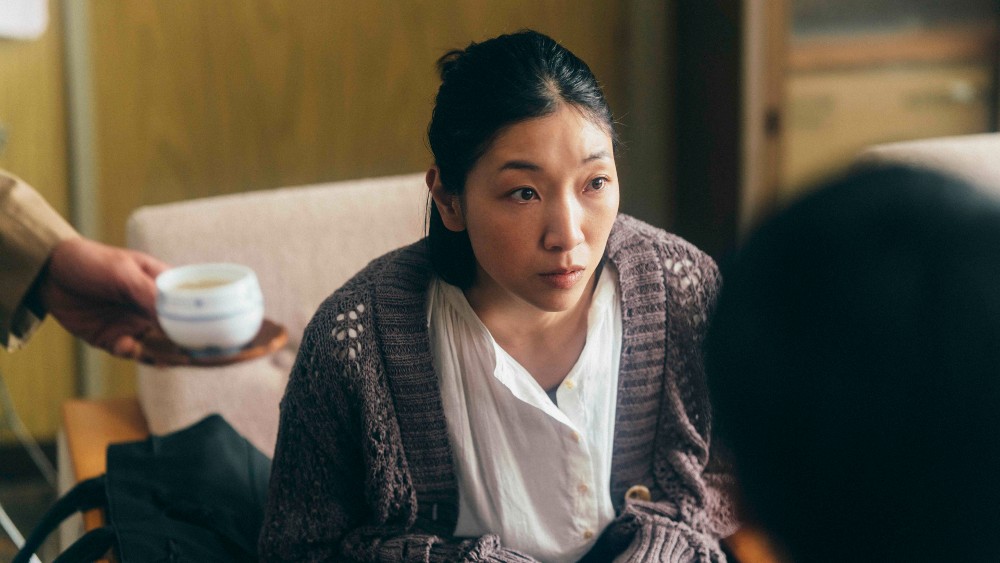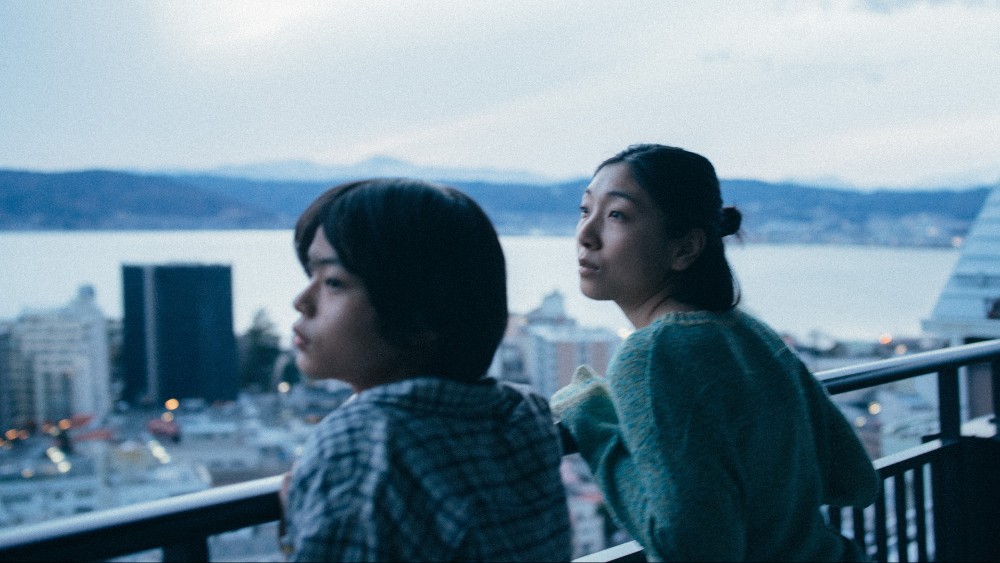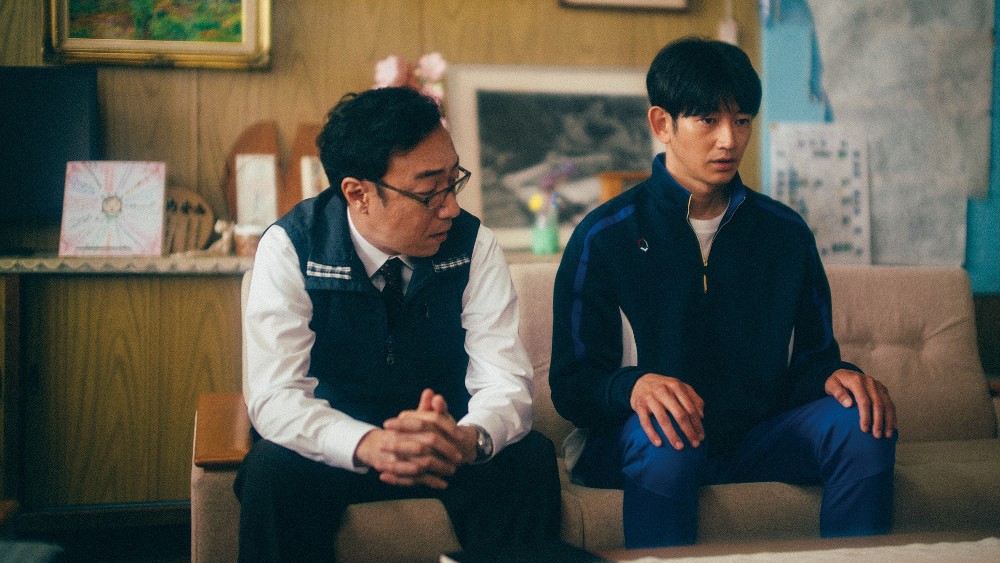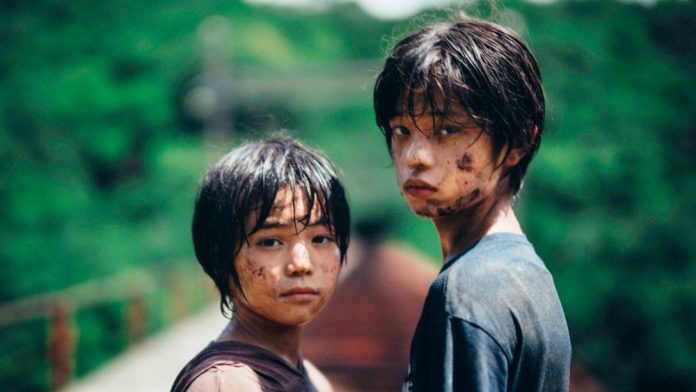Japanese filmmaker Hirokazu Koreeda might be one of the country’s more respected living live-action filmmakers, having written and directed 13 movies between 1998 and 2022, with Shoplifters being nominated for an Oscar in 2019 and his earlier film, Nobody Knows, also being Japan’s Oscar submission.
Kore-eda’s latest film, Monster, takes him back to his directorial debut, Maborosi, from 1995, in that he didn’t write the screenplay for this one. It stars Ando Sakura from Shoplifters as a mother who learns that a teacher (Eita Nagayama) may be bullying her son due to his strange behavior, but when she confronts the power-of-be at the school, she can’t get any answers as her son gets more and more distressed about returning to school. Meanwhile, the teacher accused of the bullying is dealing with the repercussion of what might be spurious accusations. Finally, we get to see things through the perspective of her son and his schoolmate, so we can learn what’s really going on.
At Cannes last year, Kore-eda’s latest won the screenplay award as well as the Queer Palm Award, continuing the run of acclaimed works in the filmmaker’s long-running career. Unfortunately, Japan did not submit it for their Oscar submission, going instead with the equally great Perfect Days from Wim Wenders, but Monster is another strong offering from Kore-eda that actually (and quite ironically) covers similar ground as the Oscar-nominated German submission, The Teacher’s Lounge.
Above the Line had a chance to speak with Kore-eda-san back in November, and we’ve just been waiting for the right time to share that interview, since it hasn’t been as widely available to watch since its release.

Above the Line: I’ve been familiar with your work for about 20 years, but I think your last three movies, at least the ones I’ve seen since Shoplifters. This is a little strange since it was written by someone else, since you usually write your own screenplays, so how did you find this screenplay or story to direct?
Hirokazu Koreeda: If I don’t write the script, I have long been a fan of Sakamoto Yuji, the scriptwriter, and have watched all of his TV dramas. I wished that I would be able to work with him on a script that he had written. My producer and he were working on a treatment, and from his side, too, my name came up as his choice for directing, so that was four years ago in December of 2018, when I first saw the treatment that Mr. Sakamoto had made. So that’s when it started.
ATL: Had you given him any ideas of a subject matter you might want to pursue and approach, or were they already developing the idea and then brought that to you? Was there a lot of back and forth?
Koreeda: Yes, we did exchange ideas and opinions back and forth. It was during COVID, so we didn’t meet directly, but once every month or once every two months, we would meet with the producers, and I would look at the script that he had revised, and then we would exchange opinions, and then, he would rewrite some more. By the time it came to shooting the film, I felt very familiar with the script, although I had not written it, so I didn’t feel it was that different from shooting a script from my own writing the script.
ATL: I don’t know if ever read your American reviews, but the film Rashomon has come up a lot, due to how Monster is told from multiple points of view. Was that always part of the writer’s original idea to tell the story that way or was that something you developed with him once you got involved?
Koreeda: When I first received the plot treatment, it was already a three-part narrative of the mother, the teacher, and the children. Of course, Rashomon came to my mind as well, but I had already seen several of Sakamoto Yuji’s television dramas, where he would, for example, give the first through third episodes from the husband’s point of view, and then, the same thing would be retold from the wife’s point of view from Episode Four on. I had seen that method he had used, and I realized that in this script he was adapting that similar method of storytelling.
ATL: Was the movie always called Monster from when he first sent you the screenplay?
Koreeda: I think at first, the provisional title was very different, and I think it was myself that suggested about using Monster as the title.
ATL: There’s a lot of discussion after people see the movie about who the “monster” is. Have you found that’s the case in Japan, as well?
Koreeda: Yes, of course. I think people who have seen that film go to the point of discussing who the monster really is. When I first read the plot treatment, for the first half or so, I was wondering who the “monster” was, as I was reading it, and then when it came to the part of the children, then I realized that I myself am the monster, because I’ve been the one who’s been searching and trying to label something as a “monster.” I was very struck by that structure of the script, and I thought that was necessary to reflect in the film as well, that we ourselves become the monster in the end.

ATL: One of my big takeaways from the film is something we haven’t seen in many movies is that the parents never know what’s going on at school with their kids, and the teachers never know what’s going on at home with the kids. There are these two worlds you’d think they were meshed together, though they’re not. This movie really shows that. Did that strike you as well when you first read it?
Koreeda: Yes, I think we only see things from a very narrow perspective ourselves, and that’s the way we look at other people. From the limited information, we make up our minds as to how we’re going to act, so it’s a very flawed way of behaving. I think we have multiple episodes in the film that show that way of behaving.
ATL: Another thing that’s always impressed me about your films, going back to Nobody Knows, is your ability to find children for these really important roles. In the case of Monster, these two young actors, I don’t know if they how much experience they had, but they’re fantastic. They carry that last third of the movie. How do you go about finding these young actors and how do you go about working with actors who might not have as much experience as the adults?
Koreeda: I audition child actors or children who will play the roles. It basically is my choice of who might be suited for the roles that I have in mind. I may put in a lot of reasons afterwards, but at least initially, it’s just my preference as to who might be best fitted for certain roles, and these two were the best fitted for this film. Normally, what I do is to develop the script and the performance being close to their own personality, the children’s personality. This film, I took a completely different approach, and I thought that it was very important for the child actors to base their roles in a completely different way. They’re both experienced actors. For example, the one who played Yori never questioned me at all about any part. Occasionally, I would give him a hint as to how to act, and he said, “Oh, I understand,” and just went on that way. The actor who played Minato, the main boy character, was always concerned about how to express the emotional aspect in how to build his character. It was a process of untangling his insecurity about how he should approach his character to have him be able to play the character in a natural way.
ATL: I don’t get the impression you have an ensemble of actors you use in every single movie like some directors do. Each movie is a different cast of actors. Is that true or are there actors who have appeared in a number of your movies?
Koreeda: There are some actors that I’ve worked with five or six times, and of course, in this film, I had just worked with Ms. Ando in Shoplifters previously. It’s not that I’m avoiding working with the same actors, but it just depends on the project of who would be best fitted for the project. As to children, I think since my way of directing is quite different from other directors; way of directing children, I think it’s very important for them to have the experience of working with other directors as well. I don’t want to keep them in my stable and use them over and over again.

ATL: Let’s talk about one of the greatest composers of all time, Ryuichi Sakamoto. It’s so sad we lost him earlier this year. Did you know him for a long time? Had you or him approached each other about doing something, and it happened to be this movie? It’s a beautiful score that just adds another layer to what you’re doing dramatically.
Koreeda: Of course, I knew about the great star, Sakamoto Ryuichi, from when I was a student, and I was really very attracted to his music. It’s not as if we had a close relationship. About 10 years ago, I approached him to score a film for me, so we met several times to discuss that, but that project was shut down – it never was realized. I wanted to work with him, of course, since that time, and this time, I was the one who asked him if he would be able to work on the film. I wasn’t sure how serious or how debilitating his illness was. At first. I didn’t get a response from him, and then I decided I would keep asking. I wrote him a letter and then added some of his music to the letter to suggest that this is the kind of thing I’m thinking of with a clip. A couple of weeks later, I got a response that he would be able to work somewhat on the film.
ATL: Was he able to see the movie with the final mix before he passed away in March?
Koreeda: He wasn’t able to see the very final version with all the dialogue in it.
ATL: Before I let you go, I do want to ask about Broker, since I have two friends who are both Asian, adopted by American families. One is Korean, and he was quite moved by the movie and wanted to ask you about having that movie being told from the mother’s perspective, since there are so many movies based on the child or adoptee. Why did you decide to do that for Broker?
Kore-Eda: I’m not sure how things work in the West, but in Japan too, there are things like a baby box, where usually the mother can put the baby to have it be taken care of. There’s been debates, as to whether that is the right thing to do, and, of course, the person who is criticized is the mother, not the father, because ultimately, it’s the mother who has given birth and who is going to leave the baby. Many of the criticisms [are] if you’re going to throw the baby away, then why give birth at all? Why if you don’t want to raise the child, why have a child? I wanted to make sure that wasn’t the reason that this mother was having to use the baby box in this film. I want to show that aspect.
ATL: Thank you so much. It’s an absolute pleasure meeting and talking to you. I think Monster is a movie that people are going to want to watch over and over again, because once you get to the end, you feel differently than at the beginning, and you need to rewatch it, so congratulations.
Koreeda: I think among my films, it has the most repeat audience numbers as well.
Monster will be available to buy on digital starting February 27, then available to rent on March 12, before debuting on Blu-ray™ April 9.



